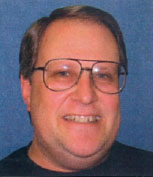
[caption id="TheEnviableBede_img1" align="aligncenter" width="153"]

As YOU CAN SEE by reading Barbara Cooper’s story on films produced in Britain during World War II (page 38), history, art, and propaganda sometimes become intertwined. For the purists among us, such “historical” epics do not really deserve the same credence as rigidly factual accounts. Yet part of a historian’s job is to interpret facts and present them in a way that leads to insight. Cynics might call that propaganda, but others might, with equal justification, call it enlightenment.
Whatever you choose to call it, the practice is tried and true and dates from a time far earlier than World War II.
Drythelm, a rather carnal Englishman who died, visited the afterlife, and then returned to warn his friends what lay in store for them. The story has all the flavour of a cleverly disguised sermon on the consequences of a sinful life and the need for spiritual discipline. Describing how the repentant brother would often take a dip in the river even in the bitterest of weather, Bede writes:
THOSE WHO BEHELD IT would say, “We marvel, brother Drythelm, …that you are able to endure such severe cold;” be answered simply,
Bede used the media of his day to pump up the morale of his fellow Christians, much the same way that 20th-century film-makers stoked civilian morale during the war.
In fact, we have a second great example of this brand of history in another of our features in this issue. The Venerable Bede, whom we introduce in our article on the monastery at Jarrow (page 46), is recognized as the greatest historian of the medieval age. But his Ecclesiastical History of the English People, written in the first half of the 8th century, is also a masterpiece of spiritual propaganda. Bede used the media of his day to pump up the morale of his fellow Christians, much the same way that 20th-century filmmakers stoked civilian morale during the war.
For example, Bede’s history includes the compelling story of brother for he was a simple and sober-spirited man, “I have seen greater cold.” And when they said, “We marvel that you choose to observe so hard a rule of continence,” he replied, “I have seen harder things.” And so, until the day of his calling hence, in his unwearied desire of heavenly bliss, he subdued his aged body with daily fasting, and forwarded the salvation of many by his words and life.
Surely, such dramatic flair must make many of today’s film-makers green with envy.
[caption id="TheEnviableBede_img2" align="aligncenter" width="147"]






Comments